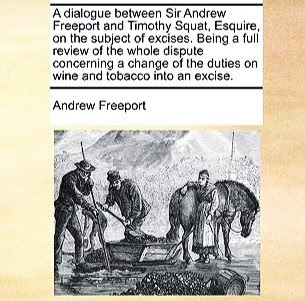Also Read
In the essay Spectator Club the person who come next to the Templar was Sir Andrew Freeport, a wealthy merchant of London. He was a person of untiring industry, strong reason and acquired great experience in life. He notions of trade and commerce are noble and generous. Sir Andrew was well acquired with business in all its parts. According to the essayist sir Andrew would tell us that he was against of stupid and barbarous way in extending dominations by arms because according to him true power is to be captured by art and industry. Sir Andrew Freeport always thought that dalliance always makes more lasting power and acquisitions then valour.
Sir Andrew Freeport had ships on every sea in the world. The world of commerce was his common pasture. His wealth grew by his own efforts and hard work. He was very laborious, experienced and had a great understanding on the sphere of trade and commerce. His knowledge of life was extensive. His own ideals are enlarging the trade of his country in drastic manner. He planned his own prosperity and help to make England a rich and powerful nation.
Sir Andrew always preferred several maxims among which is greatest favourite was, "A penny saved is a penny got." He always considered that a general trailer of good sense was more pleasurable then a general scholar. Sir Andrew had a natural unaffected eloquence which made his discourse always attractive. As a wealthy merchant Sir Andrew had made his fortunes by his own abilities. He always used to say that English would be richer than other Kingdom by all those plain methods by the means of which he himself become richer than others in the essay Of The Club.
He wouldn't like to see beggars on the streets: in his perception they seems like ineffective idleness which gave no help to diligence and worthless for whole society. His conception toward price action could be reduced without lowering wages, the term which we call the division of labor. Acquiring wealth by putting military power is foolish and insignificant for him: true authority arose from the "skill and industry".
His retirement plan even can't drag him out of the market place. He shifts his investments from merchandise and bonds to land estates in rural countryside. While other business men might not be able to force themselves to retire from the market. he would succeed, for he planned to be busy with his rural property. His project to employ many laborers in improving the countryside land to fertile for cultivation. Sir Andrew maintaining his association to the Club in London, even in his old ages.
